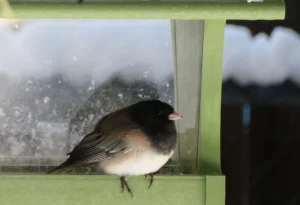 My husband sent me a link to a book review this week by an author whose work is in my wheelhouse. The author’s new book extolls the mental and physical health benefits of walking in his neighborhood the past several years. Of small observations and large realizations. I think of my almost-finished manuscript of walking my own neighborhood. A world-weary sigh escapes my lips as I drop my phone into my satchel and head to class.
My husband sent me a link to a book review this week by an author whose work is in my wheelhouse. The author’s new book extolls the mental and physical health benefits of walking in his neighborhood the past several years. Of small observations and large realizations. I think of my almost-finished manuscript of walking my own neighborhood. A world-weary sigh escapes my lips as I drop my phone into my satchel and head to class.
As I face the brisk wind on my walk, hair whipping around my face, I can’t help but mourn another idea and book-in-progress lost. I know some will say that my book would be different, offer another perspective. But in the world of marketing, this is now a been there, published that idea. For this walk, I keep my eyes downcast and look for patterns in the shadows underneath
skateboards wheels and the feet of laughing students. There is no joy discovering these shapes, only something akin to overwhelming sadness and self-recrimination. Why haven’t I been able to publish more of my walking essays? Why didn’t I finish my book this summer rather than eating all of the crème brûlée in France?
My husband and I used to discuss this publication phenomenon earlier in his career. It seemed that he would referee articles for scientific journals for ideas he had but wasn’t able to research further or write. He is a well-regarded but under-published researcher. I cringe now to think of the encouragement I gave him back then, not really understanding the intellectual loss of non-publication that is also wrapped in a kind of self-defeat. Does our work even matter if it’s not published? Perhaps this is the curse of deep thinkers who are also slow writers—to be well thought of but whose writing sees less and less publication.
As I re-read Ralph Waldo Emerson’s “Self-Reliance” with my students this semester, we move quickly beyond Emerson’s admonishments of being both great and misunderstood. Instead, this group of students finds a different passage to question: “In every work of genius, we recognize our own rejected thoughts: they come back to us with a certain alienated majesty.” How to explain this? So often we don’t have confidence in our own ideas, but when someone else voices them, we recognize our latent genius. If only we had spoken what was on our minds or in our hearts first. When we discuss this passage in class, I use it as a call to action to speak their truths and to ask questions without fear.
After class, I walk back to my car in the dark, wondering what causes my own hesitation. I was able to voice this a few weeks ago to a friend—of never believing I was (or am) intelligent. There’s something that keeps me from thinking I’m smart enough to share some of my ideas. Being a nerd who sometimes speaks too slowly for others and whose brain makes odd connections can be a long-term ego hit. Doubt becomes insidious and, over time, project after project is abandoned.
This is only part of the problem, though. Since my husband sent me the article, I keep thinking of something my friend, Jesse, told me a few years ago. While we were out celebrating the publication of his second book, I asked him how he found the time for his own writing. Jesse told me he made the decision to put his writing first. Before we left lunch, he reminded me to decide to whether I wanted to be a teacher or a writer first. I’ve held onto the idea for so long that I can do both well that the two are permanently intertwined for me. I look around at my writing mentors who seem to do both well and continue to publish books, which causes me to reflect more on my own situation. Reflecting on how my priorities shifted during the pandemic makes me question if all of these changes are always to my benefit. Perhaps there is something about caring too deeply for others and not enough about my own goals and dreams.
Can I even write anything anymore without referencing or evoking teaching or students? Or is it that both teaching and students inspire my writing? Rather than an intertwining, perhaps this is instead my ouroboros. Is this my new infinity? What begets what? Is it that I must believe my own genius to write? Or that I must write to believe my own genius?
Tonight, here at my desk, I question the ideas alienated and majesty. Like looking at a word for a long time causes us not to know if it’s spelled correctly or if it’s even a word at all. This is a kind of brilliance I find in Emerson, who captures the dual human experiences of awe and mundaneness. How is it that our own selves can be alien to us at times? As for majesty, I prefer to think of the golden leaves of the aspens, or the swift moving clouds as evening descends around me.
That my ideas can be majestic is its own sort of madness to me. That I can be intelligent is its own kind of alienation. I let my thoughts turn back to birds, when my world was much smaller a few years ago. Rather than my ideas returning to me as alienated majesty, I think I’d rather imagine myself as a fat little junco whose whole world is her back yard. Stay close to the ground, gather seeds, prepare for winter. Leave the majesty to the natural world for now and return Emerson to my bookshelf until next semester.

